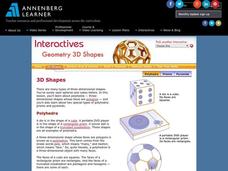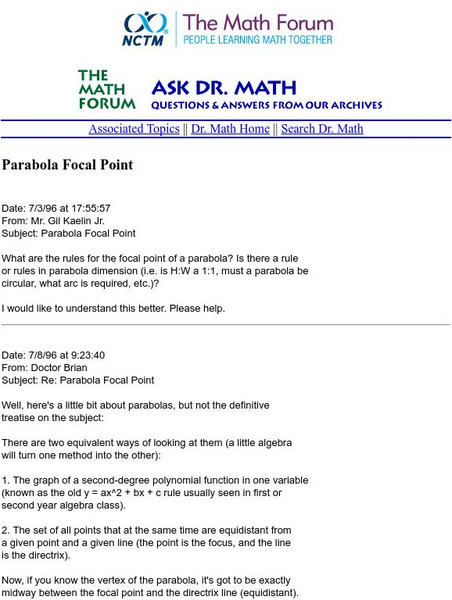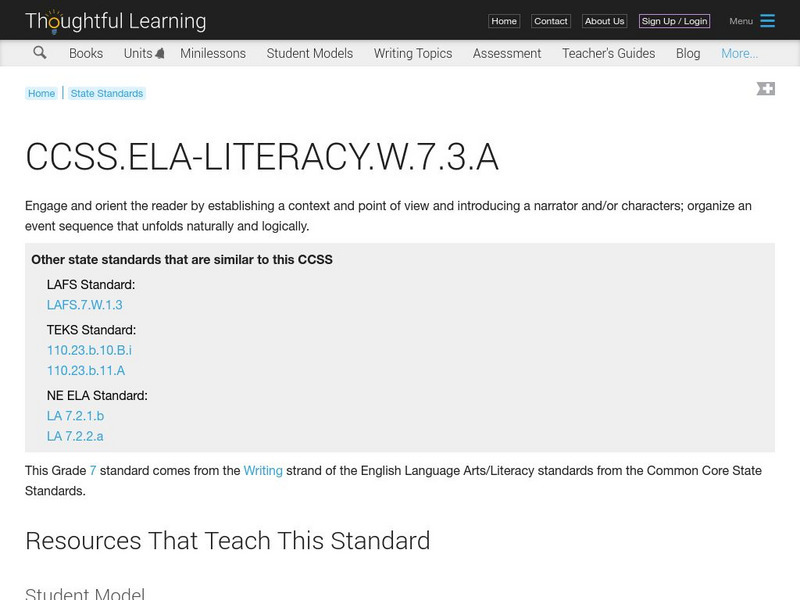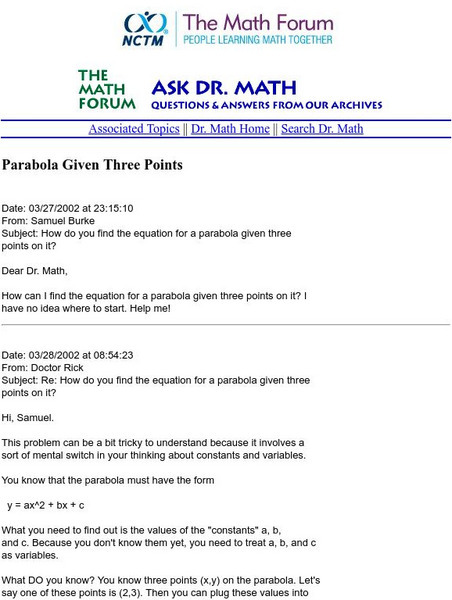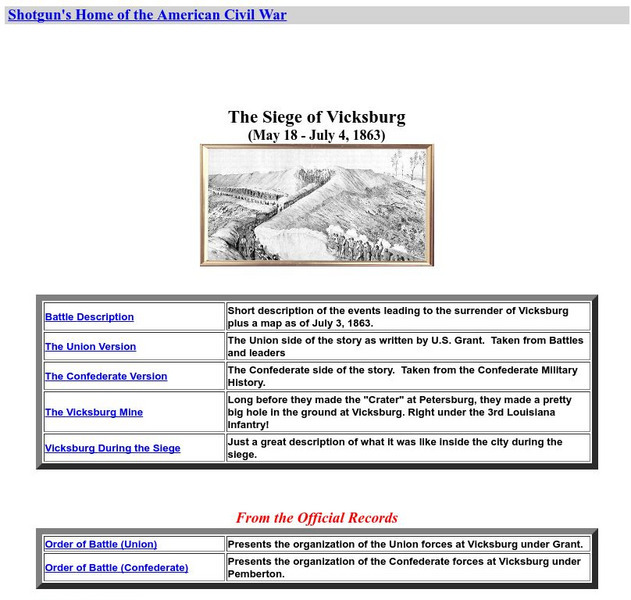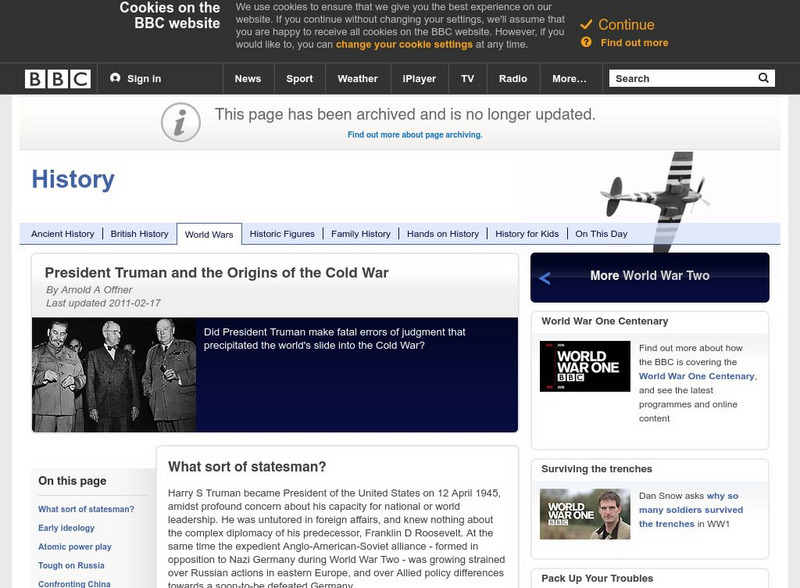University of North Carolina
Blogs
The blogosphere may be overwhelmed with content, but there's still room for unique points of view. Creating a blog that stands out, however, is the bigger challenge. A handout on blogs, part of a series of handouts on specific writing...
University of North Carolina
Word Choice
Words matter, particularly in academic writing. Issues such as vague language, wordiness, and cliches make it difficult to get a point across. Part of a larger series to improve writing skills, the handout on word choice shows writers...
Judicial Learning Center
The Appeal Process
Why doesn't the Supreme Court hear testimony from witnesses? How do they complete an entire proceeding in less than two hours? A helpful lesson guides scholars of criminology through these and other questions by explaining how appeals...
Annenberg Foundation
Geometry 3D Shapes: 3D Shapes
Explore vocabulary related to three-dimensional shapes. An instructional website describes the characteristics of different geometric solids. Learners can use an interactive component to view nets, faces, vertices, and edges of common...
PBS
Tiger of the Snows: Tenzing Norgay
Tenzing Norgay, the Sherpa man who made history when he reached the summit of Mount Everest with Sir Edmund Hillary, is the focus of an informative article. Class members read about Norgay's perspective on the way up the mountain, the...
Curated OER
College Education
What do Bill Gates and Mark Zuckerberg have in common? They're both billionaires, and neither one has a college degree! Using the website, scholars explore whether having a college education is truly worth the money it costs. They read...
University of North Carolina
Argument
What elements make up a successful argument? A helpful resource describes aspects of an argument such as the claim, evidence, counterargument, and audience. Perfect as an individual assignment for a flipped lesson or collaborative work,...
American Museum of Natural History
Being an Archeologist: Chuck Spencer
Meet Chuck Spencer, an archeologist who studies the Zapotec people who lived in the Valley of Oaxaca, Mexico over 2000 years ago. Spencer shares in print his response to questions posed by kids.
Poetry4kids
Five Ways to Overcome Writer’s Block
Every writer knows how terrible writer's block can feel. Use these five writer's block-busting techniques to help young writers get out of their rut and into a better state of mind.
American Museum of Natural History
Train of Thought
Hop aboard the train of thought. A remote learning resource has learners consider thought experiments to consider scientific theories. It provides two examples, one on orbiting bodies and the other on the speed of light, for them to work...
Virtual Museum of Canada
Virtual Museum of Canada: Community Stories: Another Point of View: Northern Bc's Story Through Photos
An amazing array of historical photographs of British Columbia's industrial past can be found in this informative site.
Nobel Media AB
The Nobel Prize: The Nobel Prize in Physics 1923: Robert Andrews Millikan
This Nobel website on the life and scientific work of Robert A. Millikan includes a biography, images, and internet resources for further reading and research. Also included are the 1923 "Presentation Speech" which praised Millikan's...
PBS
Pbs Learning Media: Rhinoceros Release
In this segment from Nature, Rangers release the Black rhino to a new location in Southern Africa where rhinos are previously endangered.
National Council of Teachers of Mathematics
The Math Forum: Ask Dr. Math: Parabola Focal Point
Dr. Math discusses some of the "rules" of parabolas that are specific to the focal point.
Library of Congress
Loc: The Empire That Was Russia, Photographic Record Recreated
The digital revival of the glass plate images of the Russian Empire on the eve of World War I by photographer Sergei Mikhaylovich Prokudin-Gorskii. Very interesting from both historical and technological points of view.
Other
Thoughtful Learning: ccss.ela literacy.w.7.3.a
Pick and choose from these lessons and units that focus on narrative writing. Specifically, how to establish a context and point of view, introduce characters, and organize an event sequence.
PBS
Pbs Learning Media: Rhinoceros Capture
Rangers capture a Black rhino in the South African National Park in order to relocate him in this segment from Nature. [4:31]
National Council of Teachers of Mathematics
The Math Forum: Ask Dr. Math: Parabola Given Three Points
This site gives a student a hint of how to determine the equation of a parabola when given three points on the parabola. The Dr. only hints at the solution, encouraging thinking on behalf of the student.
E Reading Worksheets
E Reading Worksheets: English Worksheets and Tests
Downloadable worksheets and tests focusing on reading, figurative language, genre, language arts, point of view, and text structure for middle grades.
Other
Six Minutes: Speech Analysis #3: Modified Sandwich Technique for Evaluations
A resource featuring a systematic approach to presenting a speech evaluation including various modifications. SL.9-10.3 Eval Presentation. CCSS.ELA-Literacy.CCRA.SL.3, SL.9-10.3 Eval Presentation
Civil War Home
Home of the American Civil War: The Siege of Vicksburg (May 18 July 4, 1863)
Read about the siege of Vicksburg from both the Union and Confederate points of view, the plight of the citizens, and official orders of battle.
Other
The Hastings Center: Ethics of Medical Research With Animals
A collection of articles from a variety of experts with differing points of view on the subject of using animals for scientific research. Beyond these nine articles, the site provides links to many additional studies on the subject,...
BBC
Bbc: President Truman and the Origins of the Cold War
BBC correspondent Arnold A Offner discusses the role Harry S. Truman played in development of the Cold War. American history from a British point of view.
The National Gallery (UK)
National Gallery, London: Ite: Learning Ideas and Outcomes: Subject Focus
This extensive lesson plan uses the painting 'A View of Het Steen in the Early Morning' as a starting point to learning in science. Students will use the work by Reubens to learn about a variety of animals and their habitats.
Other popular searches
- Authors Point of View
- Teaching Point of View
- Author's Point of View
- Point of View Rubric
- Identifying Point of View
- Point of View Narrator
- First Person Point of View
- Animal Point of View
- Different Point of View
- Third Person Point of View
- Ants Point of View
- Message Point of View



